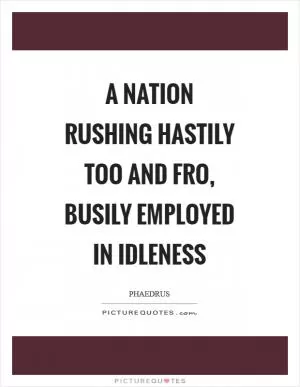Everyone ought to bear patiently the results of his own conduct

Everyone ought to bear patiently the results of his own conduct
In the fable of Phaedrus, the moral lesson that "everyone ought to bear patiently the results of his own conduct" is a central theme that is explored through various stories and characters. Phaedrus, a Roman fabulist, uses animals as characters to convey important moral lessons to his audience. Through these fables, Phaedrus teaches his readers about the consequences of their actions and the importance of taking responsibility for their behavior.One of the most famous fables by Phaedrus that illustrates this moral lesson is the story of "The Wolf and the Lamb." In this fable, a hungry wolf comes across a lamb drinking from a stream. The wolf accuses the lamb of muddying the water and demands an explanation. Despite the lamb's protests and attempts to reason with the wolf, the wolf ultimately devours the lamb. The moral of the story is that the wolf's actions were unjust and that he should bear the consequences of his own conduct.
Another fable by Phaedrus that emphasizes the importance of taking responsibility for one's actions is "The Farmer and the Snake." In this story, a farmer rescues a snake from a pit and nurses it back to health. However, when the snake recovers, it bites the farmer, causing his death. The moral of the story is that one should be cautious in helping others, as they may not always appreciate or reciprocate the kindness shown to them.
Through these fables and others, Phaedrus conveys the message that individuals must bear the consequences of their own conduct, whether it be good or bad. By illustrating the outcomes of various actions through the interactions of animals, Phaedrus encourages his readers to reflect on their own behavior and the impact it has on themselves and others.












 Friendship Quotes
Friendship Quotes Love Quotes
Love Quotes Life Quotes
Life Quotes Funny Quotes
Funny Quotes Motivational Quotes
Motivational Quotes Inspirational Quotes
Inspirational Quotes